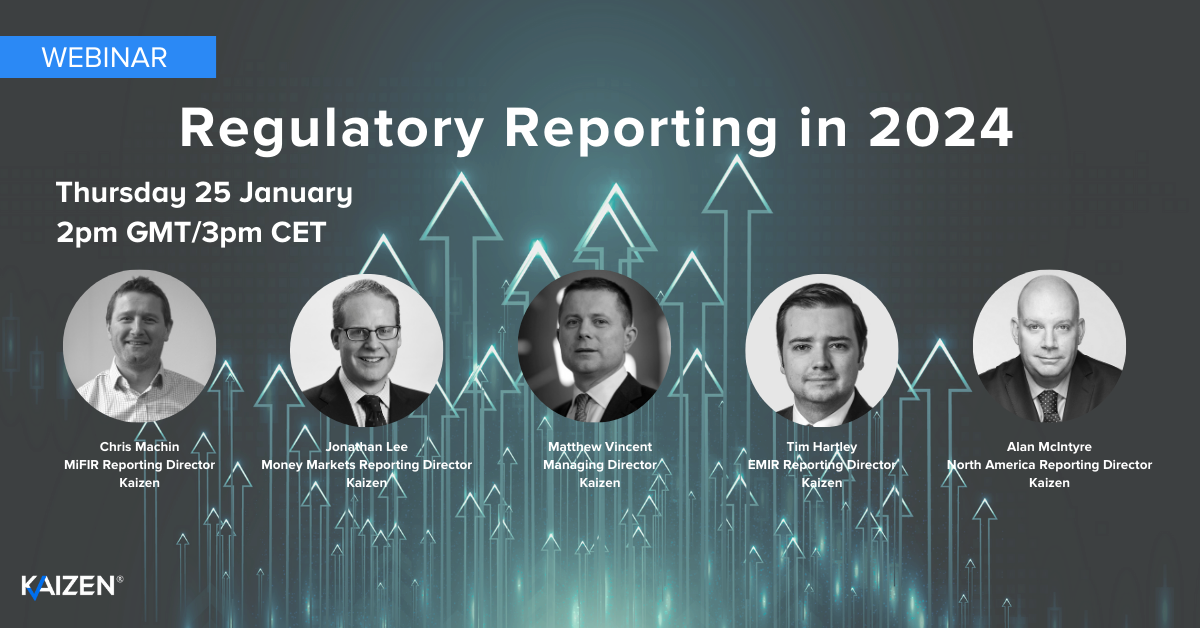The (Trade) State We’re In: SFTR Q&A #2

ESMA has updated its SFTR Q&As (28 January) to provide clarification on three areas:
- (6) How to report past modifications,
- (7) How to update a trade state report belonging to a SFT, and
- (8) Reporting of SFTs by the FC on behalf of a SME-NFC pursuant to Article 4(3) SFTR.
The clarifications provided in Q6 and 7, while not appearing to make any of the reporting simpler, should ensure that activity corrections and modifications provide an accurate picture of past trade lifecycle, while maintaining an accurate current trade state.
Late Reporting Guidance – Question 6
In Question 6, ESMA explains that whether you are reporting one or a number of events (e.g. modifications or corrections) with past event dates (prior to reporting date -1), then you should submit these reports with the correct historic events dates. Since these will not be captured in the current trade state report, you must also send a modification report of the latest version (its current state), with the date in which the report is made (i.e. the same date as in the reporting timestamp field).
Integrity of the Trade State Report – Question 7
ESMA’s response to question 7 clarifies the treatment of events in the creation of trade state reports.
Part a), explains that only actions reported where event date is equal to or one business day less than reporting date should be included in the trade state. This should take into consideration non-working days in the jurisdiction of the reporting counterparty or entity responsible for the report.
Part b), states that the trade state of an SFT relates only to outstanding transactions and that while changes to terminated or matured SFTs should be incorporated in the event log, they cannot be reopened. Trade repositories (TRs) should not update the latest state of an SFT if the event date of a report is prior to Reporting date -1.
Parts c) & d) explain that while it is possible to report a termination late, using the action type – Termination (ETRM) and the relevant event date and termination in the past. The TRs should subsequently update the latest trade state report and remove these SFTs. The TRs should also remove these SFTs from their reconciliation 30 calendar days after a termination is reported.
Mandatory Delegation for Small NFCs – Question 8
Question 8 is focussed on full clarification of how financial counterparties (FCs) provide mandatory delegated reporting for small non-financial counterparties (NFCs).
Part a) lays out the counterparty & reuse table fields and data that will need to be supplied by the NFC. It also reiterates the FCs responsibility to report the trades as soon as they are in receipt of the necessary information, even when late.
Part b) explains the situation in which the NFC has allowed their LEI to lapse – in which case, the FC must submit reports as soon as it has been renewed by the NFC.
Part c) reiterates that it is the responsibility of the NFC to keep its status as a small NFC up to date with the FC. Where this status is updated late, the FC should submit the missing reports (new trades, modifications & terminations) ASAP.
Finally, Part d) explains that in the unusual situation in which the FC and NFC are reporting to different TRs and the status of the NFC changes such that they become eligible for mandatory delegated reporting by the FC, then the NFC should transfer its outstanding SFTs concluded with the FC to their TR.
- Kaizen provides Accuracy Testing on SFTR reports to provide assurance that your SFTR reporting is accurate and complete. For a conversation about your SFTR reporting challenges, please contact us.
- To read the Q&A visit ESMA’s website.


